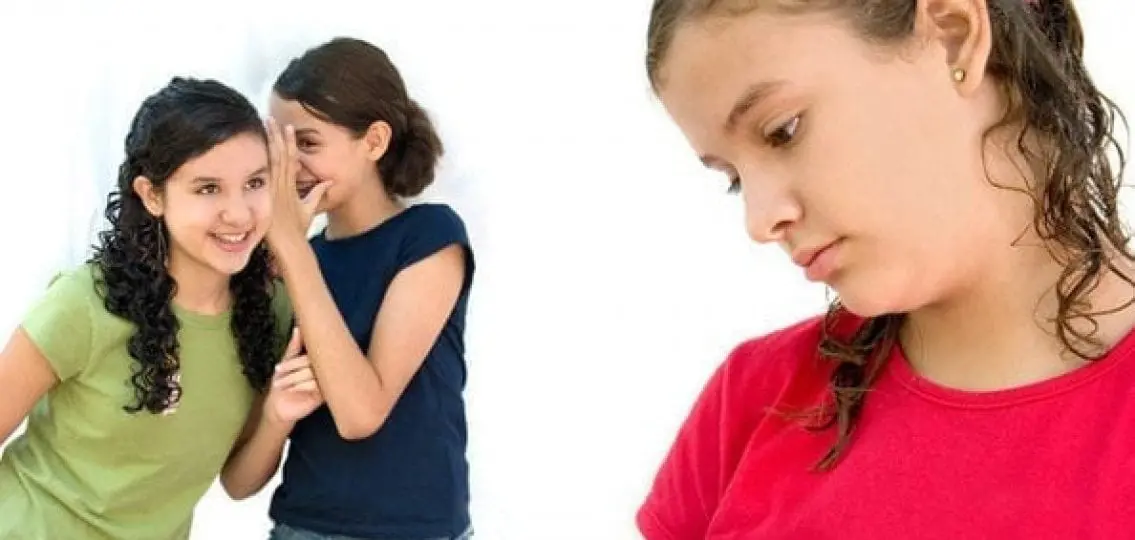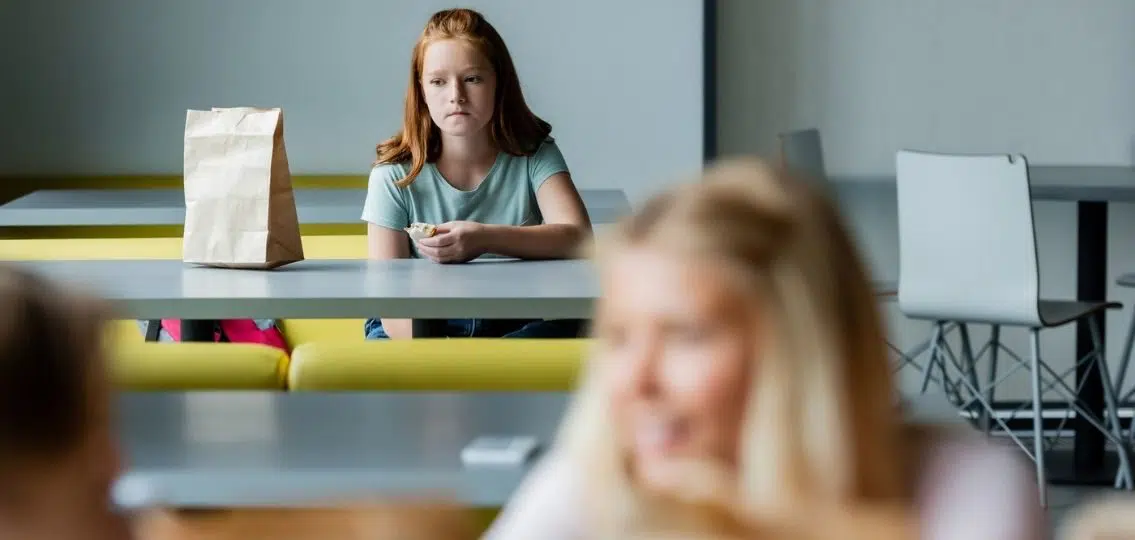Years ago, my kids and I were spending a summer afternoon at our neighborhood pool. Picture this familiar scene: children laughing and running, lifeguards blowing whistles, clusters of parents chatting. And me desperately trying to read a few pages of a book between “I’m starving! Can I buy an Airhead?” to “I need you to watch me make every letter of the alphabet when I dive. Make sure you’re watching every one!”
I just wanted to read my book.
My nine-year-old daughter interrupted one more time to tell me she was bored. “I don’t have anyone to play with,” she said.

“Play with Anna, or Amelia. They’re right there,” I said.
“They don’t want to play with me,” she explained. Not broody, just matter-of-fact.
These girls had played together before. I’d had Anna over at our house plenty of times. Recently.
“Amelia is chasing me around and telling everyone I’m the devil. There’s no one here to play with now.”
I instantly closed my book, sat up, and scanned the pool for Amelia and Anna, finding them cuddled together in one towel on a single chair. Filled with shock that these girls I knew and liked could be so mean, I did what I had never done before. I walked directly over to them. I asked Anna to come with me a few steps away. Was Amelia telling everyone that my girl was the devil and not to play with her?
I fully expected her answer to be no. She nodded.
Well. There it was. A terrible truth. What to do with it?
Nearby sat Amelia’s mom, a woman I didn’t know well but thought I liked, chatting with a friend. In that moment, I wanted her to know how horribly her daughter was behaving. I wanted her to make my daughter’s pain go away. I wanted her to no longer be allowed to sit there so happily while my daughter and I left the pool. But how do you tell a parent their child is mean?
None of these feelings had any hope of making my daughter feel better.
Most of all, I wanted my daughter to have someone kind to play with at the pool.
I imagined what this mom’s reaction might be. She would:
- Be embarrassed
- Vow to talk with her daughter
- Be extra sweet to my daughter the next few times we saw her
- Force her daughter to apologize
- Hear her daughter’s side of the story with growing acceptance
- Label me over-protective
- Call my daughter over-sensitive
And then she would forget about the entire incident. It was an outcome I didn’t like at all.
I decided to sit with my feelings in search of a better resolution. For a few days, I stewed, battling with myself over the right amount to intervene. Should I call the other mom? Is it too late? I already felt some guilt for even marginally involving Anna.
I recalled a former teacher’s guidance on tattling.
If you’re trying to get someone else in trouble, you’re tattling. If you’re trying to keep someone out of trouble, you’re telling. I wasn’t trying to help Amelia and frankly, I wasn’t in a position to help her. Perhaps I could have convinced myself that telling her mom would teach her right from wrong. But a girl like Amelia isn’t going to change because her mom catches her. She will only get craftier.
My discovery of Amelia’s character was the terrible truth, but here’s the wonderful truth: I didn’t need Amelia or her mom to make my daughter feel better. I didn’t even need the truth from Anna, and if I had it to do over again, I’d have left her out of it.

Instead of looking to outsiders to validate my daughter, we talked through things she could do to feel better. As she listed all the things that would help—from inviting other friends to join us at the pool to telling Amelia with confidence to stop talking about her—she emerged from this incident with the knowledge that she could handle herself when other people are mean. In the long run, teaching these kind of self care skills is much more effective than tattling.




